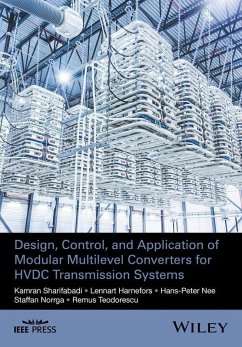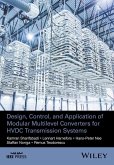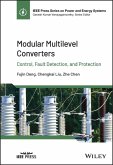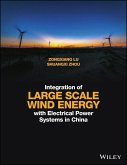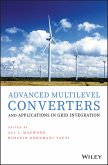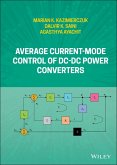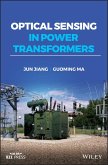Design, Control and Application of Modular Multilevel Converters for HVDC Transmission Systems is a comprehensive guide to semiconductor technologies applicable for MMC design, component sizing control, modulation, and application of the MMC technology for HVDC transmission. Separated into three distinct parts, the first offers an overview of MMC technology, including information on converter component sizing, Control and Communication, Protection and Fault Management, and Generic Modelling and Simulation. The second covers the applications of MMC in offshore WPP, including planning, technical and economic requirements and optimization options, fault management, dynamic and transient stability. Finally, the third chapter explores the applications of MMC in HVDC transmission and Multi Terminal configurations, including Supergrids. Key features: * Unique coverage of the offshore application and optimization of MMC-HVDC schemes for the export of offshore wind energy to the mainland. * Comprehensive explanation of MMC application in HVDC and MTDC transmission technology. * Detailed description of MMC components, control and modulation, different modeling approaches, converter dynamics under steady-state and fault contingencies including application and housing of MMC in HVDC schemes for onshore and offshore. * Analysis of DC fault detection and protection technologies, system studies required for the integration of HVDC terminals to offshore wind power plants, and commissioning procedures for onshore and offshore HVDC terminals. * A set of self-explanatory simulation models for HVDC test cases is available to download from the companion website. This book provides essential reading for graduate students and researchers, as well as field engineers and professionals who require an in-depth understanding of MMC technology.
Dieser Download kann aus rechtlichen Gründen nur mit Rechnungsadresse in A, B, BG, CY, CZ, D, DK, EW, E, FIN, F, GR, HR, H, IRL, I, LT, L, LR, M, NL, PL, P, R, S, SLO, SK ausgeliefert werden.
Hinweis: Dieser Artikel kann nur an eine deutsche Lieferadresse ausgeliefert werden.

